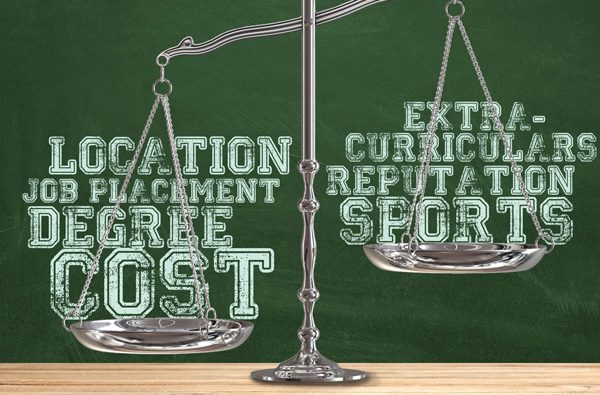
[dropcap]For[/dropcap] the first 18 years of a student’s life, they are conditioned to trust and depend on their parents and other adults for their basic needs and important decisions. In the first year of a person’s life, the baby is essentially an extension of the parent – depending on the mother and father for everything necessary to survive.
As the baby grows and matures into a child, they’re progressively given more autonomy. The child chooses their own clothes, their own friends and then their own interests and hobbies. Nevertheless, that adolescence is draped in a deep dependence on one’s parents for major decisions.[pullquote]Where you go to college matters, and the kind of loans you have matter, too. Federal student loans come with crucial consumer protections like income-based repayment plans, while private loans offer little or no relief if you hit a rough patch.[/pullquote]
But suddenly, that dependence takes a huge blow. For teens looking to advance their academic career beyond high school, one decision stares them in the face: Where do I go to school?
When a student is sorting through multiple college acceptance letters, there are a number of questions worth pondering.
One question is how much the school costs.
“I always preach overall best value,” says Terrie Shipley, a college consultant in Oklahoma.
It’s no secret that colleges and universities today are expensive. After four grueling years of academic rigor, most students come out of college gaining brainpower, but give up an arm and a leg to tuition and room and board prices.
According to a 2014 report from the Institute for College Access and Success, the average amount of student loan debt increased for the class of 2013 to nearly $30,000. The study also found that graduates in Oklahoma finished school with an average of $22,174 in student loan debt.
“A college degree is still the best path to a job and decent pay, and while loans are increasingly needed to get through school, graduating with burdensome debt is not a foregone conclusion,” says Lauren Asher, president of the Institute for College Access and Success, in a public statement last year. “Where you go to college matters, and the kind of loans you have matter, too. Federal student loans come with crucial consumer protections like income-based repayment plans, while private loans offer little or no relief if you hit a rough patch.”
Whether a university is public or private also plays a pivotal role in the cost of the degree. Traditionally, private schools are more expensive than public schools. Despite this difference in cost, however, a recent Pew Research Center study found that public and private school grads are equally satisfied with their college experience and return on investment.
Another vital aspect of selecting the right college is to make sure that the school a student selects is academically compatible and ranked highly in the field of study the student wants to enter.
Every school has certain academic fields that it is particularly strong in, and doing one’s homework on what area of strength that school has can pay off in the long run. But even if a student is unsure about what he or she wants to major in, it’s not the end of the world.
Ultimately, college is an exciting time in many young adults’ lives, and the college selection process should be exciting as well.
There’s certainly a lot of research that goes into finding the perfect college fit, but research is worth getting use to, because from this point forward, it doesn’t get any easier for the student.






















